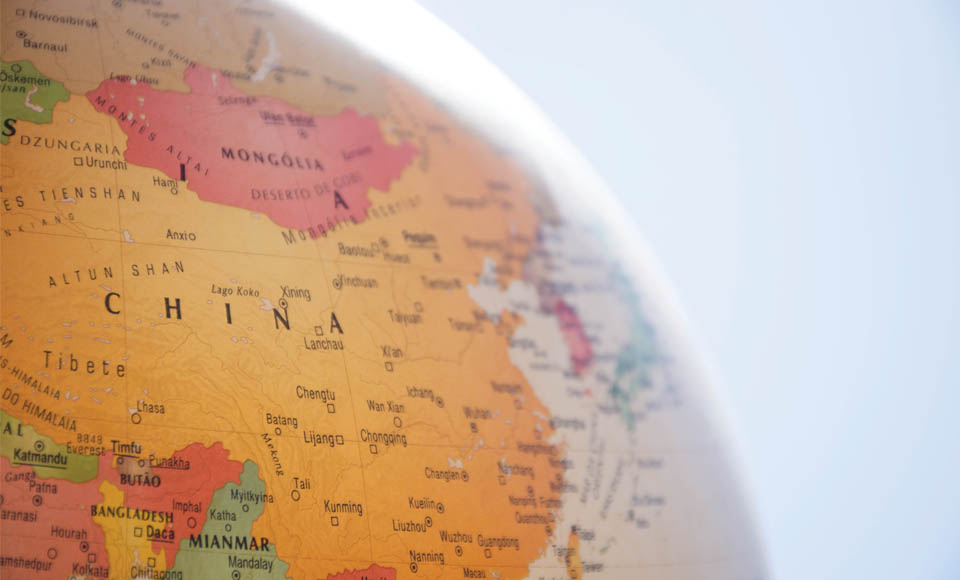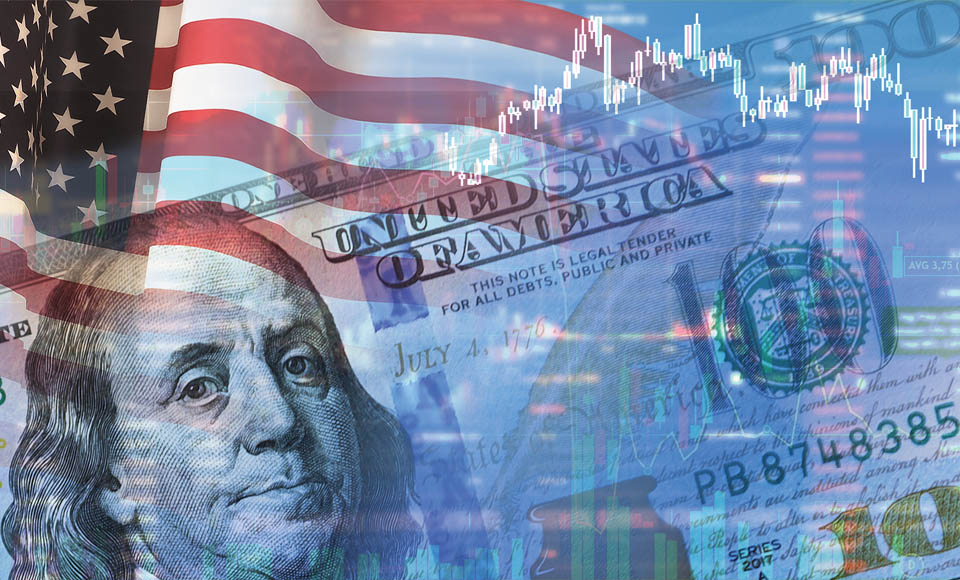
A new geopolitical and economic order is being written through the emergence of China as an economic, military and diplomatic superpower and threatening the status of the United States. We are heading towards a multipolar world in which the search for strategic autonomy is changing the dynamics of international trade for the worse. Nothing will be more determinant to the world’s destiny over forthcoming years than the relationship between Beijing and Washington. Europe risks being a mere bystander.
André Veríssimo
Depending on the estimates, Chinese GDP is forecast to overtake the United States between 2030 and 2037 even while the America’s ‘per capita’ output continues to be far superior. A landmark that shall further cement the character of China as an unavoidable trade partner. Which in turn strengthens its diplomatic weighting.
The “One Belt, One Road” project, launched a decade ago, serves this dual purpose of strengthening the commercial and political ties – simultaneously establishing alternative corridors for the transit of goods other than through the Straits of Malacca – through financial support for major infrastructure investment projects with a total amount estimated to be one trillion dollars. The “new Silk Route”, as it is also called, spans around three-quarters of the world’s population and over half of its GDP.
Such financing turns recipient countries into “hostages” of Beijing. The Chinese Communist Party has been accused of engaging in debt-trap diplomacy, with the loans containing blatantly one-sided clauses. The economic crisis of recent years has driven a spike in non-compliance. The Financial Times reported in April that over 78 billion dollars of such loans had been renegotiated or written-off over the last three years.
This has been the key approach deployed by China to raise its influence across Western and Central Asia, in the Pacific, in South America and Africa, very often in exchange for licences to access the natural resources that the country either lacks or produces only in small quantities. In various cases, Beijing effectively filled the gap left by Europe, the United States and even Russia. Following the invasion of Ukraine, Putin’s country is likely to be increasingly left behind as an economic and political satellite of China.
The military dimension has also come in for major reinforcement. Xi Jinping ensured the continuity of his rule following his re-election by the Chinese Communist Party for a third mandate last October. Already this year, he was confirmed as President at the Twentieth National Assembly. His inaugural speech, lasting over an hour and a half, contained 73 references to the term “security”, against 55 occasions in 2017, reflecting its rise in importance on the state agenda.
Xi made a promise to “accelerate the process of raising the popular armed forces to world class standards” in the next five years. In 2022 alone, China raised its military expenditure by 7%, an increase equivalent, however, to 16 billion dollars and the largest nominal rise ever. The forecast is for an identical increase this year.
China, culturally oriented towards the long term, has long been patiently building its bases for future economic, political and even military supremacy. Such ambition inevitably collides with the current holder of this statute: the United States. Indeed, at at time when, while China maintains an autocratic system with a leader who shows no signed of ever leaving, the United States is a politically profoundly divided country.
“The People’s Republic of China is the only competitor with the intention of redesigning the international order, in a growing fashion, with the economic, diplomatic, military and technological power to achieve this. Beijing holds the ambition of establishing an Indo-Pacific sphere of influence and become a potential world leader”. The paragraph comes from the most recent United States National Security Strategy report dated October 2022.
The most visible face in this diplomatic confrontation shall be an island containing around a third of the territory of Portugal. Xi is not giving up on his principle of “only one China” and wants reunification with Taiwan. Joe Biden has insisted that American troops would help defend the island in the event of any invasion. Whoever ends up residing in the White House after the presidential election of 2024, the position on China is unlikely to change given the similarities between the Democrats and Republicans on this issue.

A multipolar world
The United States still holds advantages. The international domination of the dollar, which China also strives to counter, is the leading example. Furthermore, the liberal American model may generate greater economic success than the increasingly centralised approach imposed by the Chinese Communist Party.
Furthermore, it is undeniable that we already live in a multipolar world, with the influence of Beijing prevailing over a vast section of the globe, imposing itself as a mediator for the resolution of diplomatic conflicts and tensions, as has already happened this year between Saudi Arabia and Iran. This trend is only set to grow.
Forthcoming years also provide for the emergence of other new actors, strengthened by their economic growth. The emerging economies, particularly in Asia, are going to assume a growing weight in world GDP. The IMF foresees that India, which this year overtook China in terms of population, strengthens its third place in the ranking of the largest economies on the planet, with its national purchasing power verging on that of the United States. Indonesia is forecast to leap into sixth position
The new regional powers, essentially non-aligned, will seek to maintain their strategic autonomy, reflecting in an international positioning characterised by the pragmatism that enables them to satisfy their own interests without entering into a position of dependency.
In turn, Europe is losing its relative weighting. Germany, which was the world’s third largest economy in 1992, is forecast to hold onto its current fifth position while France and the UK drop down to the last two positions in the top 10. The purchasing power of the 447 million consumers in the European Union (EU) and the bloc’s industrial capacities shall continue to guarantee a relevant role. The 27 are also leading the way in the energy transition expected to be increasingly important over forthcoming years.
Will there be further enlargement? After the great wave eastwards in 2004, countries have arrived at a slower pace. Croatia was the last new member state to join, in 2013. There are a further eight candidates – Montenegro, Serbia, Turkey, North Macedonia, Albania, Ukraine, Moldova and Bosnia-Herzegovina – and Georgia have already submitted accession requests. This does prove that the values, the social and economic models of the EU remain a beacon of development even while the Russian threat is, in some cases, also a motivation.

In search of strategic autonomy
Strategic autonomy is nevertheless a luxury that Europe cannot afford. The invasion of Ukraine exposed the continent’s dependence on the United States, which today blocks the EU from taking a clear stance in relation to China. If, on the one hand, there is no desire to weaken commercial relationships with one of its main partners, on the other hand, there is no scope for alienating American support. As the French President, Emmanuel Macron, recently warned after meeting Xi Jinping, “the great risk” for Europe is “getting caught up in crises that are not our own”. For example, the tension between Beijing and Washington because of Taiwan.
The EU military capacity will require strengthening over forthcoming years. Germany has already set out down this path with the launch of a 100 billion fund for modernising its armed forces coupled with announcing the defence budget is to rise to 2% of GDP, which will thereby endow the Bundeswehr with one of the largest budgets in the world. Other Eastern European countries have similarly responded to the threat posed by the Kremlin. There will always be a major impediment: Russian nuclear power. Furthermore, defence budgets will also have to compete with the rising public expenditure costs caused by the unfavourable demographic dynamics prevailing on the Old Continent.
The EU learned the hard way that it needs to ensure its autonomy in other domains, such as energy, foodstuffs and the materials necessary for the energy transition. For example, China holds an 80% market share in solar panels and their respective components.
While a single market spanning the 27 member states is a strength, the time it takes to build consensus is a weakness. The growth in populism and nationalism (almost always hand in hand) within Europe means having to deal not only with the external polarisation but also internal divides. Any existential crisis would, however, seem to have been dispelled. Even the Hungarian President, Viktor Orbán, or the Italian Prime Minister, Giogia Meloni, recognise the advantages of belonging to the EU.
The race for autonomy (or even self-sufficiency) is visible in something as small and as fundamental to the contemporary world as semiconductors with Taiwan being by far the world’s largest producer. China, the United States and Europe are deploying colossal amounts of money to develop their own industrial capacity. Washington is, furthermore, placing sanctions to block access to the most advanced chips and including those made on the small island in the South China Sea.
Distributing the benefits of Artificial Intelligence
The other facet to this process is the rising level of protectionism which, over time, shall mean less growth for everybody. In undermining the competition, this prevents the markets from functioning efficiently, creating costs that end up being paid throughout the economy. The incentives for innovation deteriorate in keeping with how being a factor of differentiation declines in decisive importance.
Firstly, the pandemic, then the war in Ukraine and now the growing geopolitical fracture between the United States and China are also redesigning globalisation with the diversification and security of supply chains now top of the list of concerns for both governments and companies. Once again, with pernicious consequences for global economic efficiency and growth.
Will this all be so relevant when taking into account how forthcoming years may witness a productivity shock induced by the advent of artificial intelligence? The major natural language models, such as ChatGPT, threaten jobs while also making those who remain far more productive, improving business processes and the nature of employment, as highlighted by the article “Machines of mind: The case for an AI-powered productivity boom”, published by the Brookings Institution. The last leap in American productivity took place between 1995 and 2005, with massive investment in information technologies. Since then, the pace of growth has dropped to around a half.
Goldman Sachs estimates that the development of generative artificial intelligence (AI) shall enable the automation of around a quarter of all jobs in the United States, a percentage that rises to 46% in the case of administrative support positions. What this means is that, for the majority, there will be an increase in productivity alongside the emergence of new types of job (60% of current positions did not exist in 1940). The investment bank predicts that AI will boost the global GDP by 7%, or almost 7 trillion dollars in the space of ten years.
If we are able to learn from our errors and avoid technological progress leaving a trail of unfavourable outcomes and improving and redistributing the benefits, perhaps this new abundance will help in calming the culture and political wars that are arising within so many countries. Greater internal serenity would certainly foster external calm.

Competitive coexistence
For the meantime, this is not what is looming over the horizon. In the last decade, the world has headed along an undesirable path of nationalism, authoritarianism, protectionism and economic and geopolitical conflicts.
“We risk what I have called the ‘Great Fracture’ – the breakup of the two largest economies in the world. A tectonic failing that shall lead to two different sets of commercial rules, two dominant currencies, two ‘Internets’ and two conflicting strategies for artificial intelligence”, warned the Secretary-General of the United Nations at the Davos Economic Forum in January.
Commercial relations between the two countries may function as a mitigator: China is the main source of US imports (18% of the total) and the third largest destination for its exports (8.6%). Furthermore, the best that the world might expect is competitive coexistence between the United States and China, with the global divide into zones of influence representing a type of Treaty of Tordesillas. This Cold War style climate shall continue to chill relations and it has to be hoped without triggering an explosive conflict with disastrous consequences.
A geopolitical climate that does little or nothing to nurture the multilateralism that is needed to cope with the threat of consequences potentially more drastic, and already observable today, which derive from climate change.
The right path will be a return to dialogue at the highest level. Based on what each might consider to be in their own best legitimate interests and reach compromises. This would avoid the errors or rushed judgements that might cause everything to be lost.
As the Chinese proverb warns: “One moment of patience may avoid a great disaster. One moment of impatience may ruin an entire life”.







